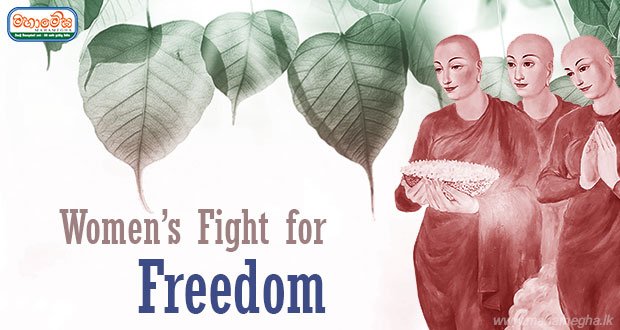“Monks, I do not see even a single thing that so causes unarisen unwholesome qualities to arise and arisen wholesome qualities to decline as bad friendship. For one with bad friends (pāpamitta), unarisen unwholesome qualities arise and arisen wholesome qualities decline.”
“Monks, I do not see even a single thing that so causes unarisen wholesome qualities to arise and arisen unwholesome qualities to decline as good friendship. For one with good friends (kalyāṇamitta), unarisen wholesome qualities arise and arisen unwholesome qualities decline.”
Aṅguttara Nikāya: Book of Ones
Apart from immediate family members, the youth spend most of their time with friends. Moreover, in today’s rapidly changing society, even time with the family is quickly dwindling in favor of long working hours for parents and extracurricular activities that keep parents and children apart. Thus, our friends become the chief influence on our lives, for better or for worse. In our desire to be accepted as full-fledged members of the social group, to fit in as charismatic characters in the eyes of others, we are liable to behave in various ways to please our friends. During the tumultuous roller coaster ride that is adolescence, many offer up on the sacrificial platter their ideals, virtue, and character to make friends and also sometimes to win the hearts of the opposite sex. They give up valuable, meaningful relationships with parents and relatives for fleeting relationships with people of dubious character they have only just met. Thus, in our attempt to please our friends, we might give up our loved ones who genuinely care for our well-being, our moral qualities which we once treasured so highly, and after some time find ourselves diminished in wholesome attributes so much to the point where when upon reflection, we cannot recognize whom we have become. Unbeknownst to us, it would be that very friendship we treasured so much which has become the dark passenger in our lives.
Hence, whom we associate with is the most influential factor that determines our direction in life, which is why it is essential that we identify the noble friend (kalyāṇamitta). The noble friend is one who helps us to develop our relationship with the Noble Triple Gem. He or she helps us grow in confidence (saddhā) in the Perfectly Self-Enlightened Buddha, the Sublime Dhamma, and the Noble Saṅgha. The noble friend encourages us to develop the wholesome in our lives: to protect virtue, practice generosity, to increase in moral qualities, and to follow the Noble Eightfold Path. He or she would make us understand the danger in saṃsāra and kindle within us shame and fear of wrongdoing, the two qualities described by the Buddha as the “Protectors of the World,” which shield us from evil when we find ourselves ready to submit to the defilements of the mind.
But identifying noble friends is a task that is easier said than done. As the saying goes, one should not judge a book by its cover. Likewise, we cannot always gauge a person’s real character by their behavior and speech. What we could do instead is to identify whether our wholesome qualities develop or decline upon associating with that particular person. If we know of ourselves, “Before I never used to kill living beings, but now after associating with this person I have begun to kill living beings. My morality has declined in this respect;” or if we know of ourselves, “Before I never used to steal, but now after becoming friends with this person, I find myself stealing. My morality has declined in this respect;” or if we know of ourselves, “Before I never used to engage in sexual misconduct, but now as a result of associating with this person, I find myself engaging in promiscuous behavior. My morality has declined in this respect;” or if we come to know of ourselves, “Before I abhorred lying, but these days after befriending this person, I shamelessly tell lies. My morality has declined in this respect;” or we come to know of ourselves, “Before I never used to drink alcohol or take drugs, but now here I am drinking and smoking in the name of friendship. My morality has declined in this respect,”—then we should surely know that we have stumbled upon a bad friend who has adversely influenced us.
It may sound simple enough to reflect in this way, but our friends are complex personalities with many facets, often both good and bad, and cannot easily be pigeonholed in this manner. Accordingly, the greatest challenge is recognizing the bad friend who comes to us in the guise of a noble friend. At times he or she might speak even more endearingly than the noble friend; he or she would attend to us when we are sick and stay by our bedside as if concerned for our health. He or she would come across as a person who always thinks about our well-being and worries over us; he or she would act as if they respect virtue, but that scoundrel’s real agenda is something else—that is to use us to achieve his or her ownends. Moreover, we should also understand that bad friends do not necessarily have to be people; even inanimate things such as television, smartphones, internet, social media, books, magazines, and newspapers can lead our life astray and thus play the role of a bad friend. Similarly, Dhamma books, Dhamma sermons, and Dhamma Discussions broadcasted via television and radio, which represent the True Dhamma devoid of careless misinterpretations, though forms of media, can be considered to be noble friends. This is so because True Dhamma always represents the Buddha, and one cannot hope for a better noble friend than the Buddha himself, an idea expressed by the Buddha in the following manner:
By relying upon me as a noble friend, Ānanda, beings subject to birth are freed from birth; beings subject to aging are freed from aging; beings subject to illness are freed from illness; beings subject to death are freed from death; beings subject to sorrow, lamentation, pain, grief, and suspiration are freed from sorrow, lamentation, pain, grief, and suspiration. By this method of teaching, Ānanda, it may be understood how the entire spiritual life is based on good friendship, good companionship, good comradeship.’
—Saṃyutta Nikāya: Kosalasaṃyutta : Kalyāṇamitta Sutta
Further, it is imperative to understand how bad friends degrade our moral qualities. In the Buddha’s Teaching, the fundamental principles laid down as virtue (the five precepts) effectively restrain manifestations of greed, hatred, and delusion through our bodily and verbal actions. The noble friend encourages us to develop virtue, and we observe the precepts with the intention of purifying our bodily and verbal conduct. However, it is when these restraints are broken due to association with bad friends that people become overwhelmed by either greed, hatred, or delusion, and commit misdeeds which create chaos in their lives and may even lead to imprisonment. In this way, virtue and noble friends are protectors for our lives. If we lose them and come under the sway of bad friends, we are treading the path towards ruin.
Therefore, we should all beware of this dark passenger in our lives, stay clear of him or her, and seek out noble friends who help us in developing the wholesome. If in any case we are unable to come by noble friends, it is better to be alone rather than to associate with bad friends.
One should seek companionship with a person better than oneself,
Or else one possessing good qualities equal to oneself.
If such a person is not to be found, resolute, one should dwell alone.
No need for friendship with the bad person (asappurisa).
Dhammapada 61
Written by a Venerable Monk of
Mahamevnawa Buddhist Monastery














Recent Comments